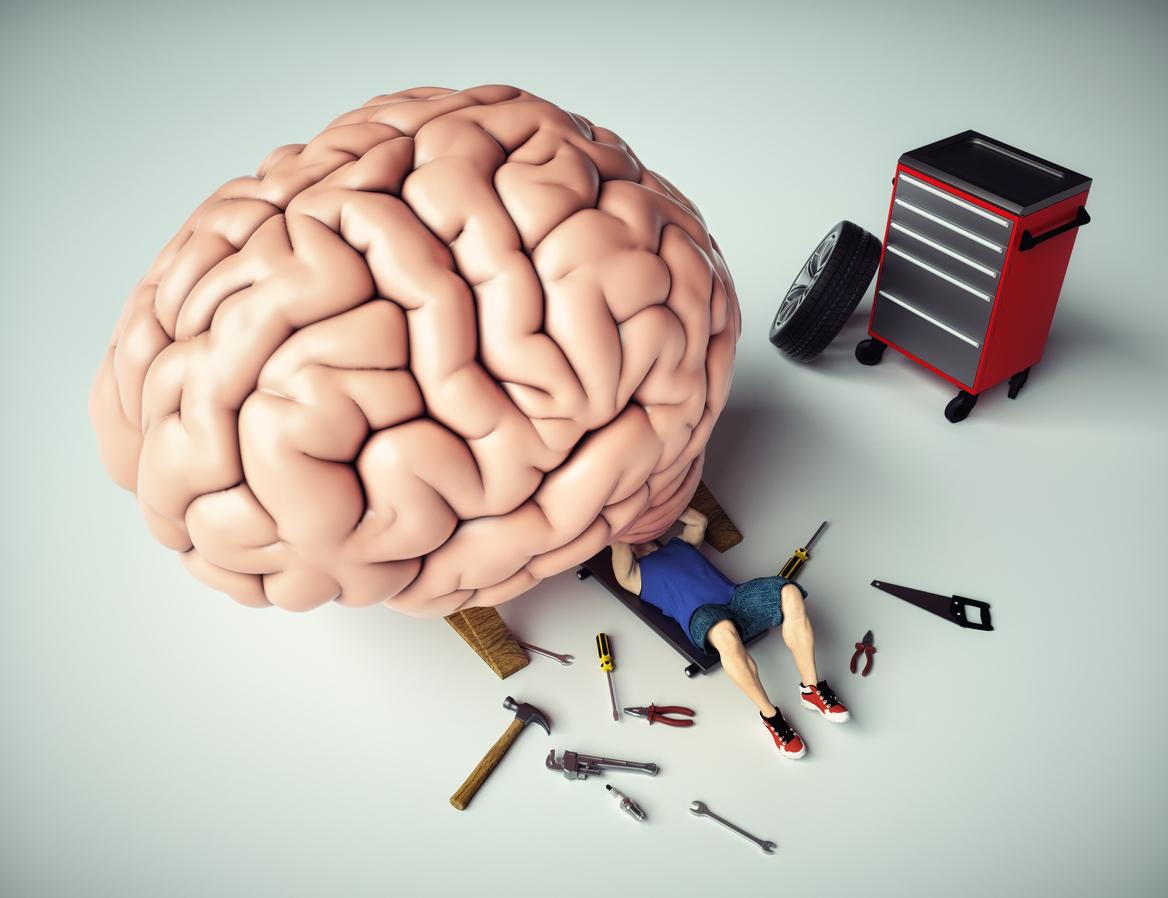According to a study, having an intellectually, socially and physically active lifestyle (lifelong learning, reading, sports, artistic and social activities, etc.) helps foster “cognitive reserve” which helps prevent cognitive decline and dementia.

- About 1.2 million people are affected by dementia in France, according to Santé Publique France.
- Dementia is characterized by an increasing impairment of memory and cognitive functions, behavioral disorders, a progressive loss of autonomy. Only 1 in 2 dementia is diagnosed, all stages combined.
- One of the main causes of dementia is Alzheimer’s disease. In France, more than 900,000 people are affected, mostly women.
The progressive accumulation of amyloid plaques in the brain is one of the hallmarks of the onset of dementia. However, some people with the same amount of plaques as others do not develop the same cognition or memory problems. Researchers at the American Academy of Neurology may have finally found an explanation for this.
Their studypublished a few months ago in the journal Neurology, reveals that various lifestyle factors, such as participation in social clubs, sports or artistic activities, seem to promote what the researchers have called a “cognitive reserve”, a kind of brain shield against cognitive decline. and dementia. Educational attainment at age 26, occupation and reading ability also add to this reserve.
Cognitive reserve compensates for poor cognition in childhood
The researchers point out that one of the biggest takeaways from their work is to keep learning. Indeed, their study shows that continuing to learn throughout life can help protect the brain. This was found to be true even among people who had lower cognitive test scores in childhood, which is particularly noteworthy since previous research has suggested that people with low childhood scores are more likely to have more pronounced cognitive decline as you age.
“These findings are exciting because they indicate that cognitive ability is subject to factors throughout our lives and that participating in an intellectually, socially and physically active lifestyle may help prevent cognitive decline and dementia. said study author Dorina Cadar in a Press release. Encouragingly, building up one’s cognitive reserve can offset the negative influence of low childhood cognition for people who might not have enjoyed a fulfilling childhood and provide greater mental resilience until later in life. See you later in life.”
Reading also helps prevent cognitive decline and dementia
For this study, 1,184 participants born in 1946 in the UK took cognitive tests at age 8 and again at age 69. Next, the research team used a cognitive reserve index to combine people’s level of education at age 26, their participation in rewarding leisure at age 43, and their occupation up to age 53. Reading skills at age 53 were also assessed as a measure of lifelong learning, considered separate from education and occupation.
Higher childhood cognitive skills, higher cognitive reserve index, and higher reading ability were all associated with higher cognitive test scores at age 69. Additionally, participants with higher cognitive reserve index and reading ability tended to see their cognitive scores decline at a slower rate than people with lower scores, regardless of childhood test scores. .
Society: the benefits of investing in activities that stimulate the brain
The authors of the study underlined the vast long-term benefits for public health and society of investing in higher education, expanding opportunities for leisure activities and providing stimulating cognitive activities for the population, by especially for people working in less skilled occupations.
However, they note that their work has some limitations. For example, participants who remained in the study until age 69 were more likely to be healthier, have stronger overall thinking skills, and be more socially advantaged than those who did not follow the project. Thus, these results may not reflect the general population.


















